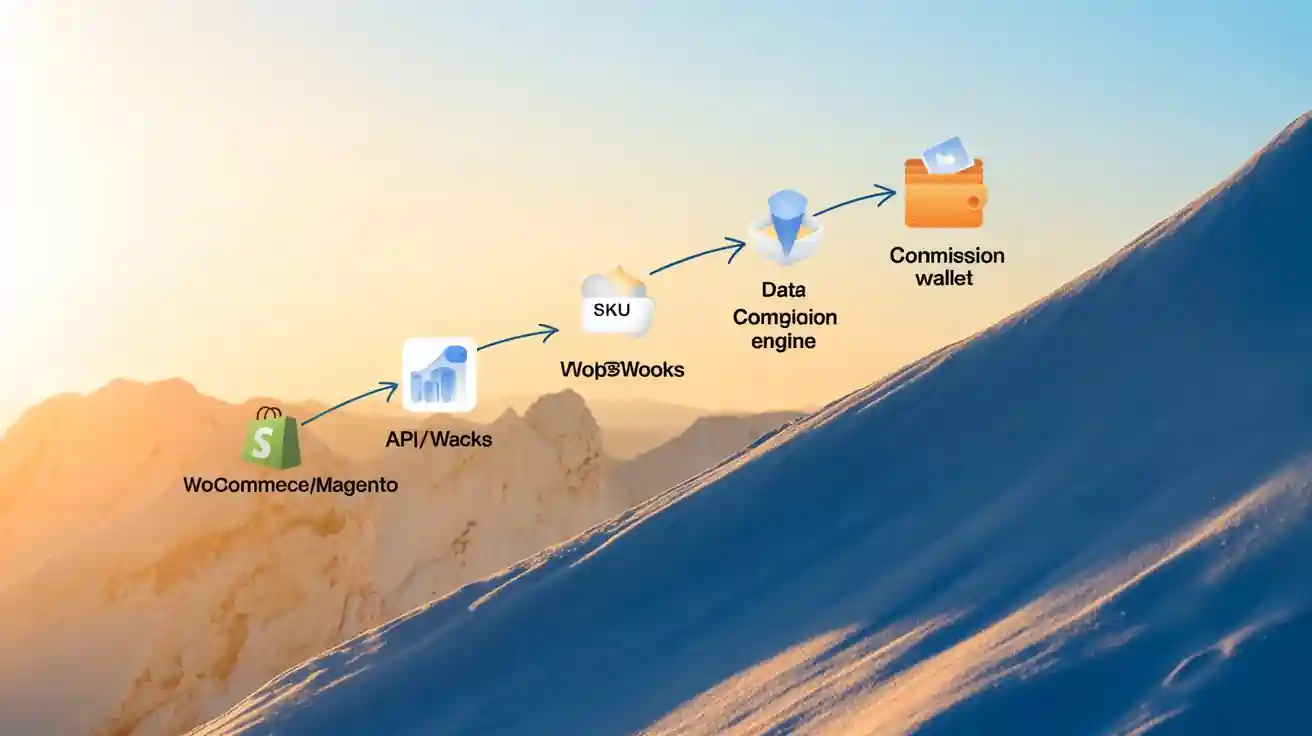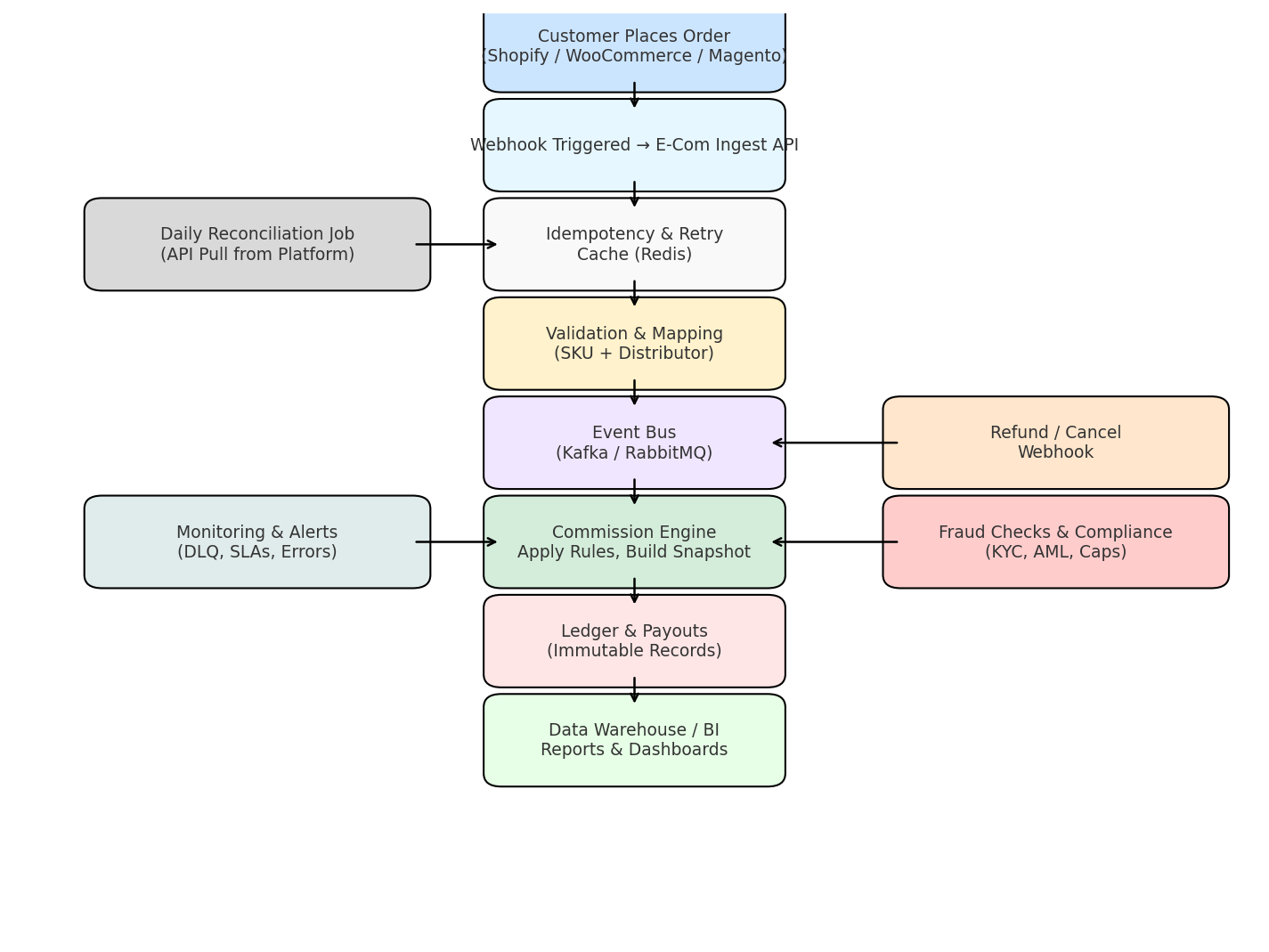

E-commerce integration in MLM software is the process of connecting online stores—such as Shopify, WooCommerce, or Magento—with a multi-level marketing platform so that every product sale is automatically tracked, mapped to distributors, and linked to commission payouts. It ensures seamless synchronization of orders, inventory, and customer data while enabling accurate and auditable commission calculations from cart to commission.
When E-commerce and MLM meet, the magic isn’t a flashy storefront—it’s the invisible plumbing: reliable sync, precise SKU mapping, and automated, auditable commissions. Below is a practical, deeply technical guide to implementing a rock-solid integration that scales across Shopify, WooCommerce, and Magento, complete with data models, API examples, a demo script, and benchmark targets.

E-commerce integration in MLM software is transforming how direct selling businesses scale, combine referral marketing with online sales, and automate operations for distributors and administrators alike. By connecting major platforms like Shopify, WooCommerce, and Magento, MLM businesses gain centralized management of sales, automatic commissions, and the flexibility to grow globally with real-time data sync and automated workflows.
Revenue velocity: Orders hit the MLM commission engine within seconds, boosting distributor trust.
Data integrity: Unified SKU and distributor attribution eliminates leakage and disputes.
Compliance & audit: Deterministic rules, idempotency, and immutable logs simplify audits.
| Platform | Integration Strength | Primary Advantage |
|---|---|---|
| WooCommerce | Plugin / Custom API | Unmatched flexibility for tiered models and customization. |
| Shopify | App / Hosted API | Fastest setup for modern brands using hosted architecture. |
| Magento | Enterprise Modules | Scalable for complex catalogs and global distributor networks. |
A rock-solid integration requires an immutable data structure. Below are the core tables for the MLM Backend:
| Category | Fields & Keys |
|---|---|
| Distributors | distributor_id, sponsor_id, status, country, tax_id, created_at |
| SKU Mapping | sku_id, platform, platform_sku, name, category, commission_class |
| Ledger | event_id, order_id, distributor_id, amount, calc_snapshot_json |
Example POST Request (Webhook to MLM)
Shopify Order Transform (JSON)
Automated calculation slashes administrative errors. The pipeline follows these steps:
commission_class.commission_event.| order_id | SKU | Buyer ID | Referrer ID | Value | Status |
|---|---|---|---|---|---|
| 301 | SUPP001 | 11200 | 11043 | 19.80 | PAID |
| 302 | BEAUTY02 | 11150 | 10090 | 9.75 | PAID |
| Metric | Target (Good) | Stretch (Great) | Measurement |
|---|---|---|---|
| Webhook Latency | ≤ 300 ms | ≤ 120 ms | APM Timing |
| Commission Emit | ≤ 2 s | ≤ 500 ms | Consumer process time |
| Idempotent Accuracy | 100% | 100% | Duplicate Check |
| Recon Delta | < 0.1% | 0% | Daily report |